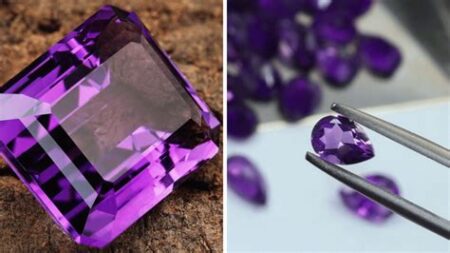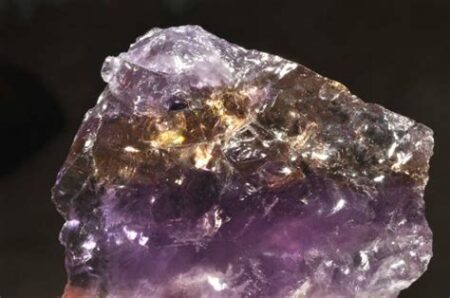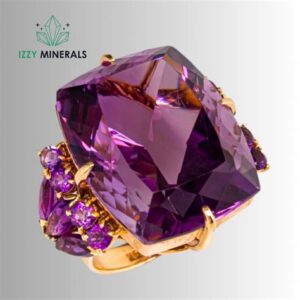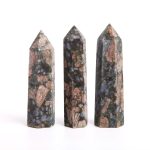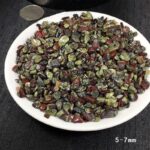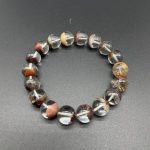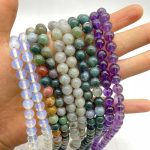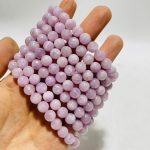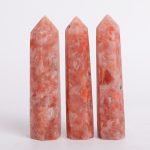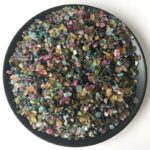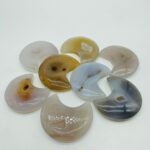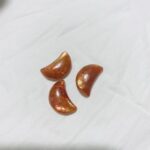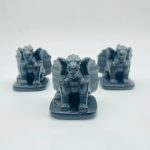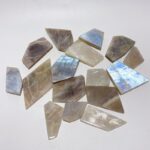Unfolding the multifaceted mysteries of serpentine rock, this comprehensive guide delves into the depths of its geological origins, historical significance, and metaphysical implications. Serpentine, a mineral characterized by its intricate patterns and distinctive greenish hue, holds a captivating allure that has enthralled civilizations for eons.

Geological Origins: A Journey Through Time
Serpentine rock traces its genesis to the Earth’s mantle, the layer beneath the crust. As oceanic crust subducts beneath continental plates, temperatures and pressures soar, causing metamorphic transformations. During this metamorphic process, peridotite, a rock composed primarily of olivine, undergoes hydration and partial melting, giving birth to serpentine.
Historical Significance: A Tale of Ancient Civilizations
Serpentine’s allure has transcended time and cultures. In ancient Egypt, it was revered as a sacred stone, believed to possess mystical powers. Egyptians adorned their pharaohs with serpentine jewelry as a symbol of divine protection.
Pre-Columbian tribes in Mesoamerica also held serpentine in high esteem. The Aztecs and Mayans crafted intricate carvings and sculptures from this mineral, attributing to it a connection to the serpent gods.
Physical Properties: Unveiling the Serpentine’s Nature
Serpentine exhibits an array of physical properties that contribute to its unique beauty and versatility.
-
Color: Ranging from deep greens to soft yellows and browns, serpentine’s coloration stems from its mineral composition and varying iron content.
-
Hardness: On the Mohs scale of mineral hardness, serpentine typically falls between 3 and 5, indicating a moderate resistance to scratching.
-
Texture: Serpentine’s texture can vary from fibrous and silky to massive and granular, depending on its formation conditions.
-
Transparency: Most serpentine varieties are opaque, although some translucent specimens exist.
Metaphysical Symbolism: Exploring the Inner Depths
Serpentine has long been associated with powerful metaphysical properties. It is believed to:
-
Connect to Earth Energy: Its grounding energy fosters a deep connection with nature and the Earth’s healing powers.
-
Promote Spiritual Growth: It stimulates spiritual development and facilitates meditation and introspection.
-
Balance and Heal: Serpentine is said to balance the chakras and promote emotional and physical well-being.
Practical Applications: A Spectrum of Uses
Beyond its metaphysical significance, serpentine finds practical applications in various industries.
-
Architecture and Design: Serpentine’s aesthetic appeal makes it a sought-after material for countertops, tiles, and other architectural elements.
-
Jewelry and Ornamentation: Its vibrant colors and unique patterns render it an eye-catching choice for jewelry, carvings, and sculptures.
-
Industry: Serpentine’s heat resistance and electrical insulation properties lend themselves to applications in electronics and electrical equipment.
Innovative Applications: Unleashing Future Possibilities
Researchers are constantly exploring new and innovative uses for serpentine, leveraging its unique properties to address contemporary challenges.
-
Carbon Capture and Storage: Serpentine’s natural ability to absorb carbon dioxide makes it a promising material for carbon capture and storage applications.
-
Geothermal Energy: Its heat-resistant nature and abundance make serpentine a potential resource for geothermal energy production.
-
Biomedical Applications: The biocompatibility and porous structure of serpentine hold promise for tissue engineering and drug delivery.
Table 1: Serpentine Colors and Meanings
| Color | Meaning |
|---|---|
| Green | Healing, growth, prosperity |
| Yellow | Joy, optimism, confidence |
| Brown | Stability, grounding, protection |
| Red | Passion, courage, strength |
| Black | Banishing negativity, protection, power |
Table 2: Metaphysical Properties of Serpentine
| Property | Benefit |
|---|---|
| Grounding | Connects to Earth energy, promotes stability |
| Spiritual Growth | Facilitates meditation, enhances intuition |
| Emotional Balance | Calms anxiety, reduces stress |
| Physical Healing | Supports immune system, detoxifies body |
| Chakra Activation | Balances root and heart chakras |
Table 3: Practical Applications of Serpentine
| Industry | Application |
|---|---|
| Architecture | Countertops, tiles, flooring |
| Jewelry | Beads, pendants, carvings |
| Electronics | Heat-resistant insulators, electrical components |
| Medical | Drug delivery, tissue engineering |
| Energy | Geothermal energy production |
Table 4: Serpentine Sources and Availability
| Country | Production (Metric Tons) |
|---|---|
| China | 3,000,000 |
| India | 2,000,000 |
| Brazil | 1,000,000 |
| United States | 500,000 |
| South Africa | 400,000 |
Effective Strategies for Using Serpentine
To harness the full potential of serpentine’s properties, consider the following strategies:
-
Meditation: Hold or place serpentine near your body during meditation to promote grounding and spiritual growth.
-
Jewelry: Wear serpentine jewelry to absorb its energy throughout the day. Choose specific colors based on your desired effects.
-
Home Decor: Incorporate serpentine countertops or tiles into your home to create a calming and grounding space.
-
Geopathic Stress: Place serpentine near areas of geopathic stress to mitigate its effects.
Step-by-Step Approach to Incorporating Serpentine into Your Life
-
Choose an application: Decide how you want to use serpentine, whether for meditation, jewelry, or home decor.
-
Source your serpentine: Look for reputable suppliers or gem and mineral shows to acquire genuine serpentine.
-
Cleanse and Charge: Energetically cleanse your serpentine by running it under water or placing it in sunlight.
-
Intention Setting: Hold your serpentine and set your intentions for how you want to use it.
-
Regular Use: Incorporate serpentine into your daily routine to experience its benefits fully.
FAQs
- What is the difference between serpentine and jade?
Serpentine and jade are both green stones, but they are composed of different minerals. Serpentine is a magnesium silicate, while jade can be either a jadeite or a nephrite.
- Is serpentine a good gemstone for beginners?
Yes, serpentine is considered a good gemstone for beginners. It is affordable, durable, and easy to work with.
- Is serpentine a rare mineral?
Serpentine is a common mineral found in various parts of the world. However, some specific varieties, such as precious serpentine, are relatively rare.
- Can serpentine be found in the United States?
Yes, serpentine is found in several locations in the United States, including California, Pennsylvania, and Vermont.
- What is the spiritual meaning of serpentine?
Serpentine is associated with the Earth element and the root chakra. It is believed to promote grounding, stability, and spiritual growth.
- How can I incorporate serpentine into my yoga practice?
Hold or place serpentine near your body during yoga poses to enhance grounding and focus.

